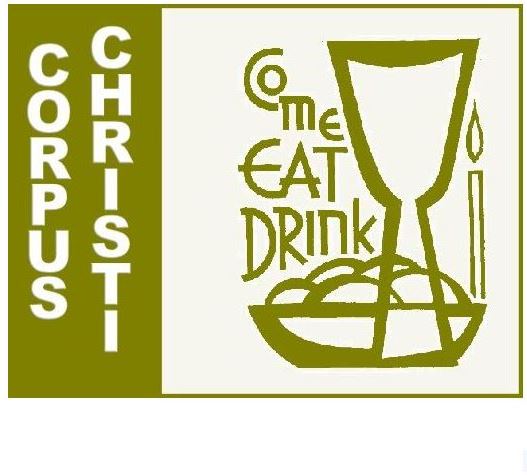Readings: Deuteronomy 8:2-3.14b-16a; 1 Corinthians 10:16-17; John 6:51-58
Theme: Keeping Alive the Blessed Memory of Jesus
In his book, Why Go To Church?, Timothy Radcliffe, O.P., tells a story that illustrates importance of the Eucharist. In the year 304 AD [at a time when Christians were being persecuted for their faith], a number of Christians were arrested in North Africa for gathering together in a house of a Roman Official to celebrate the Eucharist. When the Roman Pro-consul of the area asked the Official why he had allowed these people into his house, he replied that these people were his brothers and sisters. So he could not refuse them. And he added these striking words: ‘Without the Day of the Lord we cannot live’.
Celebrating the Eucharist was what gave meaning to the lives of the early Christians. They would risk imprisonment, or even death, rather than try to live their lives without the Eucharist. This has been true for many Christian communities down through the centuries. During the time of the Penal Laws in Ireland [the 17th to the early 18th centuries], the celebration of the Eucharist was forbidden. This did not stop many of Catholics from celebrating Mass in secret. Mass rocks were erected and used as altars, and Catholics would congregate at these sites despite the danger of being caught.
During his life on earth, Jesus’ favourite way of expressing his love for, and his desire to be one with people, especially for those who were rejected and unloved, was to share meals with them. Shared meals were, for the Jews, signs of acceptance and friendship. Like many of us, the Jews were rather selective about those with whom they shared meals. In seeking out sinners and tax collectors, Jesus was contravening their traditions. Most Jews invited only friends or powerful people to their meals. In eating with sinners, Jesus was making friends with those who had no friends. He was showing them respect and love. He was drawing them into the family of God. He was letting them see themselves in a new light and become a new people. Instead of a people with no hope, no future, they were God’s beloved children and citizens of his Kingdom. Something they had never imagined had happened. The Kingdom of God was for them, too.
It should come as no surprise to us that Jesus’ last act before his death on the Cross was to share a meal with his disciples – his Last Supper. In the course of this meal he takes bread and wine, blesses them and gives them to his disciples saying: ‘Take and eat, this is my body; Take and drink, this is my blood. Do this in memory of me.’ Jesus commands his disciples to keep his memory alive by gathering together to break and share bread. And this is what we do every time we celebrate the Eucharist.
Jesus’ last meal with his disciples is inseparable from the sacrifice of his life on the Cross, his supreme act of love. Love is manifested supremely in self-sacrifice. ‘Greater love has no one than this: to lay down one’s life for one’s friends’ (Jn 15:13). In celebrating the Eucharist we celebrate what the great German theologian, Johann Metz, called ‘the dangerous memory’ of Jesus – the memory of his suffering passion and death. It is also a blessed and joyful memory. We recall the values by which Jesus lived, and for which he died, and we commit ourselves to live by those same values: his passion for a world re-fashioned in the image of a loving God; his compassion for the poor and outcast; his mercy for, and forgiveness of, sinners; his hatred of hypocrisy; his abhorrence of violence and his commitment to peace.
In receiving the body and blood of Christ in the Eucharist, we become one, not only with Jesus, but with one another. As St Paul reminds us in our Second Reading today: ‘Though we are many, we form a single body because we share in this one loaf’ (1 Cor 10:17). This recognition of the oneness of all who partake of the Body and Blood of Christ is expressed in several ways throughout the Mass: the common acknowledgement that we are sinners; the common responses; the songs of praise; the Gloria; the Creed; the Acclamation of Faith; the Great Amen; and the kiss of Peace [unfortunately in abeyance since the outbreak of the Covid pandemic]. When St Augustine preached to his assembled congregation on the meaning of the Eucharist, he told them: ‘See what you are and become what you see: the Body of Christ… You are saying “Amen” to what you are: your response is a personal signature, affirming your faith. … Be a member of Christ’s body, then, so that your “Amen” may ring true!’
Every Eucharist ends with a sending on Mission: ‘Go in Peace to love and serve the Lord’. We are commissioned to bring the message of the Eucharist to the world. Just as the Jesus has become our Food, giving himself completely to us, so we, too, must give ourselves for the sake of the world. Our celebration of the this great feast of Corpus Christi reminds us of our constant challenge: to keep alive the blessed memory of Jesus by becoming, in the context of our time, his flesh and blood given for the life of the world. So we pray: ‘Lord, we thank you for the gift of your Body and Blood through which we are nourished and strengthened to share your love with our brothers and sisters. Amen.
Michael McCabe SMA
To listen to an alternative Homily for this Sunday, from Fr Tom Casey of the SMA Media Centre, Ndola, Zambia please click on the play button below.
|
|

